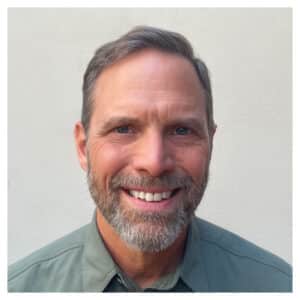Main Content
Looking Up at Canyon Mountain, Southern Oregon
“The opposite of a truth is a falsehood. But the opposite of a profound truth may well be another profound truth.” (Niels Bohr)

When I was young I’d often climb Canyon Mountain above my home, look in all directions,
and witness the human hand written into the forested landscape.
Perhaps these experiences mingling culture and nature—
or perhaps having this contradiction watch over me as a child—
led me to embrace truth as paradox.
About JDP
I’m a professor at Lewis & Clark College in Portland, Oregon in the Environmental Studies Program.
I’m a geographer with broad interests in environmental theory, and a background spanning religious studies to engineering. Feel free to browse selected publications.
I’m also the proud daddy of Joy and Elise; I’m a singer-songwriter; I founded an educational nonprofit, Alder Creek Community Forest, on my land in southern Oregon; I routinely practice Kojosho, a soft karate style; I love to run and bike with others; and a few more things.
EcoTypes
EcoTypes is an online research and educational initiative offering you an opportunity to learn how you approach environmental issues, in comparison to others.
It includes a survey—completed roughly 20,000 times to date—you can take to discover your broad environmental framework—your EcoType. But you will also learn about your complementary EcoType: the one that differs from yours the most. As you’ll read on the website: “We disagree. That’s good! Our differing EcoTypes can be a source of creative solutions.”
Our world is full of disagreement and debate: it’s understandable to believe that we need to fight the people we disagree with, or that we need to reach agreement to move forward. EcoTypes suggests a third possibility: that “many care, just differently,” that our differences can be a resource for progress if we understand and honor them.
One practical application included on the EcoTypes site involve U.N. Sustainable Development Goals, ranging from No Poverty to Climate Action, and exemplifying “many care, just differently” in the context of our global priorities.
EcoTypes is freely available to individuals and instructors.
ENVS Resources
As Professor of the Environmental Studies (ENVS) Program at Lewis & Clark College, I spend a lot of time teaching, and building learning resources.
In ENVS, we help undergraduate students do innovative, interdisciplinary environmental scholarship. We work together to make a “different difference.” Here are some related online resources I’ve developed with colleagues over the years, now archived.
Go to (archived) ENVS Resources Site
From 2012 to 2020, I and students authored a variety of websites, primarily on two dedicated subdomains, ds.lclark.edu and envs.lclark.edu, to support Lewis & Clark digital scholarship.
We have archived over a dozen shared sites, and sample student sites, to preserve some of their content and suggest the possibilities for digital scholarship in the liberal arts.
ACCF
Alder Creek Community Forest (ACCF) is an outdoor education nonprofit I founded on my 80 acre forest in southern Oregon.
It’s probably the most practical and challenging thing I do in my life, given the realities and possibilities of the rural West.
ACCF has primarily done K-12 geography and outdoor education, and built a statewide curriculum called Story of Your Place. More recently we are moving into fire resilience education and workforce development, given contemporary challenges facing the region’s forests.